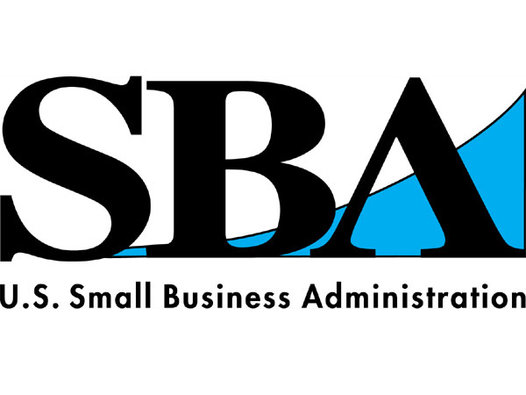
Securing Online Transactions: GABB Sept. 28
When you’re transmitting a large sum of money electronically, how can you be sure your money gets to the right place?
Ricky Robertson, Atlantic Capital Bank’s Operational Risk Manager, discussed ways that businesses you can protect themselves and their clients from wire transfer fraud at the Sept. 28 meeting of the Georgia Association of Business Brokers.
A closing should mean that the seller gets paid. Usually, the buyer wires in their down payment, the attorney develops and sends out a closing statement the day before the closing, and everyone agrees with his/her numbers. Unfortunately, a buyer will sometimes send over wiring instructions via email and those instructions get phished and the instructions end up in the wrong place! The buyer or the seller may lose their money; in some cases, millions of dollars.
View the discussion at this link.
Among the horror stories that emerged from the Sept. 28 discussion was that of a payment of more than a million dollars that a bank client asked be electronically transmitted to a vendor. The bank called to confirm that the client wanted to make the payment, but it turned out that the payment was not sent to a vendor but to a third party online thief. Fortunately, Robertson said, the bank was able to recover the money because of a mistake made by the thief.
Lesson learned: if something doesn’t sound right, don’t hesitate to call and double- and triple-check the facts. Too often humans want to be accommodating and agreeable, and thieves exploit that tendency, Robertson said.
Some scam artists gain access to a person’s email account, creating invisible folders, and get to know a target’s email habits. They may learn that a large payment is pending. Then they use their knowledge by sending fake emails with directions for transmitting funds.
Brian Harper, Senior Vice President and SBA Division Manager of Atlantic Capital Bank also talked about his bank’s upcoming merger with SouthState Bank.

Ricky Robertson, Atlantic Capital Bank’s Operational Risk Manager
Ricky Robertson began his career in law enforcement and spent six years as a detective concentrating mostly on investigating white collar crime. During his time in law enforcement, Ricky completed computer forensic investigations and served as the commander of the crisis negotiation team. Over the past 14 years, Ricky has worked in banking in the Information & Corporate Security fields. As Atlantic Capital Bank’s Operational Risk Manager, Ricky’s main job responsibilities include Corporate Security, Information Security, and Operational Risk. He has a Bachelor’s degree in Management Information Systems and earned the Certified Protection Professional certification from ASIS International.
Mr. Harper has more than 25 years of business banking and lending experience and ample experience handling multi-million dollar transactions. He is a member of the Rotary Club of Dunwoody, Junior Achievement, Georgia Lenders Quality Circle, National Association of Government Guaranteed Lenders, the Georgia Association of Business Brokers, Our Lady of Assumption Church, is a coach for Murphey Candler Baseball and a board member of the Georgetown Recreation Center.
Claudia Wilson, Vice President, SBA Relationship Manager at SouthState Bank, is sponsoring the meeting.
The GABB is the state’s preeminent organization of professionals involved in the purchase and sale of businesses and franchises, and operates the state’s only real estate school devoted to business brokering. For more information about the GABB, contact GABB president Judy Mims at judy@childcare.properties or at 404-918-3666; or email diane.loupe@gabb.org or text 770-744-3639.
Read More
Beware of COVID-19 eMail Phishing Scams
In the wake of emergency assistance available to help small businesses in response to the Coronavirus pandemic (COVID-19), the SBA is urging disaster loan applicants seeking federal aid to be alert to phishing campaigns and scams. These malicious actors are impersonating the SBA and its Office of Disaster Assistance to collect personally identifiable information (PII) for fraudulent purposes.
The SBA is particularly concerned about scam emails that are targeting applicants of the SBA’s Economic Injury Disaster Loan Program asking them to verify their accounts using a third-party online platform to collect personally identifiable information.
Watch Out for Phony Emails Asking for Your Information
- Any email communication from the SBA will come from email accounts ending in sba.gov, and nothing more.
- Look out for emails that use the SBA logo in their phishing emails and phony schemes.
These may be attempts to obtain PII, access personal banking accounts, or to install ransomware or malware on your computer.
The SBA will never use a third-party platform to:
- Actively seek PII
- Search a third-party platform for or by PII, or
- “Follow” public users proactively without a waiver.
Government Employees Do Not Charge for Recovery Assistance
Additionally, federal agencies that provide disaster recovery assistance will never ask for a fee or payment to apply for financial assistance, and government employees do not charge for any recovery assistance provided.
Tips to Keep an Eye On
- The presence of an SBA logo in an email or on a webpage does not guarantee the information is either accurate or endorsed by the SBA.
- Help protect your identity and privacy by never providing your full name, date of birth, social security number, address, phone numbers, email addresses, case numbers, or any other PII in public-facing comments or responses to third-party emails.
- Loan applicants who receive email correspondence asking for PII are cautioned to ensure that any application numbers referenced in the email are consistent with your actual application number.
- Do not click on any links or open any attachments, which are often used in phishing email scams.
The best way to avoid being scammed is to safeguard your information like money in the bank. Always be vigilant in protecting your personal information and data assets. If you suspect an email is associated with a fraud scam targeting the SBA, report it to the Office of Inspector General’s Hotline at 800-767-0385 or online at https://www.sba.gov/COVIDfraudalert.
You can learn more about scams and fraud schemes on the SBA’s website at
https://www.sba.gov/COVIDfraudalert.
Loan applicants who have questions about SBA’s Economic Injury Disaster Loan program may call the Disaster Customer Service Center at 1-800-659-2955 (TTY: 1-800-877-8339) or send an email to disastercustomerservice@sba.gov.

Beware of CARES Act Scams and Fraud
Federal officials are warning businesses who have applied for federal loans under the Coronavirus Aid, Relief, and Economic Security Act (CARES Act), the largest financial assistance bill to date, to beware of scam artists.
In a statement, the U.S. Office of Inspector General said during these “unprecedented times” it is “alerting the public about potential fraud schemes related to economic stimulus programs offered by the U.S. Small Business Administration in response to the Novel Coronavirus Pandemic (COVID-19).
The CARES Act includes provisions to help small businesses. Fraudsters have already begun targeting small business owners during these economically difficult times. Be on the lookout for grant fraud, loan fraud, and phishing.
Scams and Fraud Schemes
Grants
- SBA does not initiate contact on either 7a or Disaster loans or grants. If you are proactively contacted by someone claiming to be from the SBA, suspect fraud.
Loans
- If you are contacted by someone promising to get approval of an SBA loan, but requires any payment up-front or offers a high-interest bridge loan in the interim, suspect fraud.
- SBA limits the fees a broker can charge a borrower to 3% for loans $50,000 or less and 2% for loans $50,000 to $1,000,000 with an additional ¼% on amounts over $1,000,000. Any attempt to charge more than these fees is inappropriate.
- If you have a question about getting a SBA disaster loan, call 800-659-2955 or send an email to disastercustomerservice@sba.gov.
- If you have questions about other SBA lending products, call SBA’s Answer Desk at 800-827-5722 or send an email to answerdesk@sba.gov.
Phishing
- If you are in the process of applying for an SBA loan and receive email correspondence asking for PII, ensure that the referenced application number is consistent with the actual application number.
- Look out for phishing attacks/scams utilizing the SBA logo. These may be attempts to obtain your personally identifiable information (PII), to obtain personal banking access, or to install ransomware/malware on your computer.
- Any email communication from SBA will come from accounts ending with sba.gov.
- The presence of an SBA logo on a webpage does not guaranty the information is accurate or endorsed by SBA. Please cross-reference any information you receive with information available at www.sba.gov.
Report Fraud
Report any suspected fraud to OIG’s Hotline at 800-767-0385 or online at, https://www.sba.gov/about-sba/oversight-advocacy/office-inspector-general/office-inspector-general-hotline.
Read More

